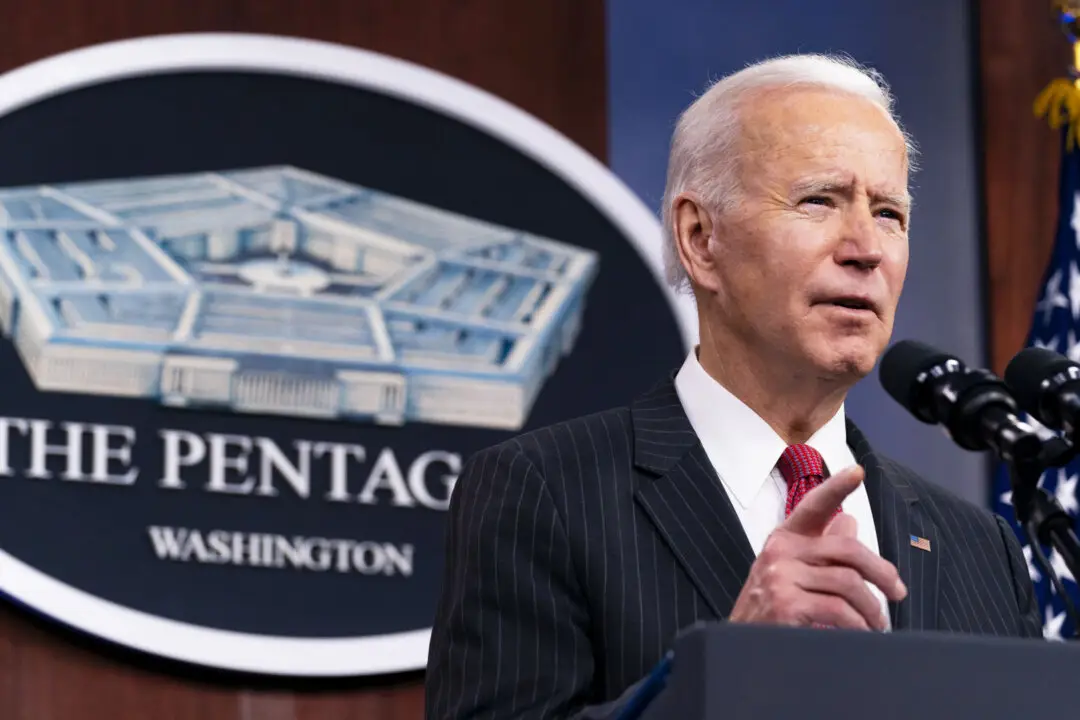Judge Robert Conrad Jr. said extra judgeships are needed under the weight of increasing caseloads.
President Joe Biden has been criticized by judicial leaders for vetoing a bill that would have added more judges to the federal bench amid a heavy volume of pending cases.
Biden on Dec. 23 vetoed the Judicial Understaffing Delays Getting Emergencies Solved Act of 2024, or JUDGES Act, which would have added 66 new district court judgeships nationwide.
Judge Robert Conrad Jr., the director of the Administrative Office of the United States Courts, said Biden’s decision was disappointing.
“Providing additional judgeships is essential to improving access to the courts and necessary for the efficient and effective administration of justice,” he said in a Dec. 24 statement.
Biden cited numerous reasons for declining to sign the bill into law, which passed the Senate in August and the House this month.
Biden said in a statement that the legislation “seeks to hastily add judgeships with just a few weeks left” in the current 119th Congress. The White House had previously warned that Biden would veto the bill before President-elect Donald Trump takes office.
Trump would have had the power to nominate judges to the federal judiciary. The GOP will control the Senate, which confirms nominees.
According to the president, the bill also “fails to resolve key questions in the legislation, especially regarding how the new judgeships are allocated, and neither the House of Representatives nor the Senate explored fully how the work of senior status judges and magistrate judges affects the need for new judgeships.”
The bill “would create new judgeships in States where Senators have sought to hold open existing judicial vacancies,” Biden said. “Those efforts to hold open vacancies suggest that concerns about [the] judicial economy and caseload are not the true motivating force behind passage of this bill now.”
In a Dec. 16 letter to Biden, Conrad explained the need for expanding the number of federal district judges.
Contrary to Biden’s assertion, the bill was years in the making through “study, analysis, and congressional review” and “would address the need for additional district court judgeships, spreading them out over the next three presidential administrations.”
The number of cases before the district bench has spiked 30 percent since 1990, according to Conrad. This, in turn, has led to longer wait times over litigating criminal and civil cases, he said.
Gabe Roth, the executive director of Fix the Court, which calls for reforms to the federal bench, called the veto “an embarrassing end to what has otherwise been, from many court-watchers’ point of a view, a productive four years of reshaping of the judiciary.”
Alliance for Justice, a left-wing judicial advocacy group, expressed support for Biden’s veto.
“Every chance to protect our courts over the next four years must be taken,” the group’s interim president, Keith Thirion, said in a Dec. 10 statement in response to the White House saying Biden would veto the bill. “It’s true our courts are overdue for expansion, but it is a disservice to the public servants committed to equal justice to so blatantly weaponize this process.”
The bill would have allowed Trump to fill some of those vacancies, though the timeline to fill them would have stretched into 2035 as the new judgeships would have been created in two-year waves during that period.
As of Dec. 25, there are 32 vacancies at the district level.

